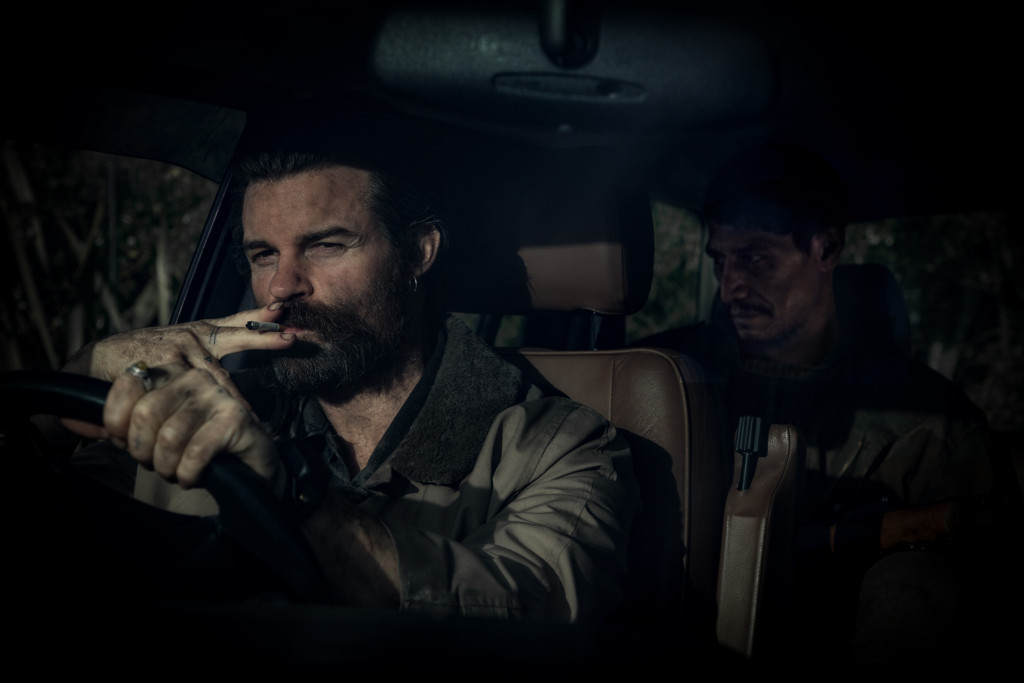What to Watch Verdict
'Coming Home in the Dark' is more aware than its simplistic setup and contained character count, where angels and demons are stripped of their signatures for audiences to define.
Pros
- +
🔑 Daniel Gillies as madman Mandrake
- +
🔑 The intimacy of evil.
- +
🔑 How tragedy can strike at any moment.
Cons
- -
🔑 The coincidence of it all is subject to questions.
- -
🔑 Always feels adapted from a short.
- -
🔑 It complicates itself, but ends in a way that will leave some guessing thematic intent.
Coming Home in the Dark is part of our Sundance 2021 coverage. You can find all of our reviews here.
Thrillers like Coming Home in the Dark embolden a noticeable regional approach. In New Zealand, in Australia, exploitative horror isn't afraid of the gnarliest, most wretched darkness. I recall titles such as Killing Ground or Hounds Of Love, invested in human monsters and the devastation that lurks within civilization. All James Ashcroft requires to turn an idyllic canyon vacation into an utter shock-and-awe nightmare is a family, intruders, and some uncomfortable miles logged once crimes reveal their consequences. No bushman creatures or copious practical gore effects. Horrors of culpability, horrors of lousy timing, and horrors that lurk in glistening daylight.
Father "Hoaggie" (Erik Thomson) and his family - Jill (Miriama McDowell) and their two phone-junkie sons - navigate highways towards another hiking excursion. Hoaggie and Jill spread their picnic dishes at a prime waterside clearing for some fresh-air relaxation away from screens. They presume to be alone until vagrant Mandrake (Daniel Gillies) and his lackey Tubs (Matthias Luafutu) come waltzing over from afar. Tubs snatches some provisions, Mandrake introduces himself with a smarmy charm and then cocks an automatic rifle. It's a robbery, but Mandrake wants more than Jill's automobile keys and Hoaggie's wallet. Mandrake knows too much about Hoaggie, and throughout their standoff, so will Hoaggie's loved ones. Everyone has their secrets, even fathers of the year.
What ignites as a crime of circumstance becomes a trial of consequence. Coming Home in the Dark contemplates karmic justice against calendar passages, as characters reunite decades down life's sin-paved roads. Jill identifies hubby Hoaggie as "The Teacher," a shared profession. When Mandrake mentions a boy's home ("Hakawai Point"), it becomes clear that Hoagie's earliest professional experience as an assistant was forgotten with reason. In adapting Owen Marshall's short story, Ashcroft and co-writer Eli Kent ponder if time heals all wounds or if repentance is still due despite histories being left in the dust. Some move onward; others remain haunted by their abusive adolescent ghosts. The man you've become versus the man you were. Etcetera, etcetera.
Ashcroft strings and sustains tension by weaponizing intimacy to squeamish degrees in choice moments. Coming Home in the Dark sucker punches audiences early to set a dangerous tone, asserting Mandrake as a mongrel not worth machismo tests. Mandrake and Tubs demand Hoaggie and who's left standing stuff inside the family vehicle, setting a course towards "home." In confined quarters, a calmer Hoaggi keeps Mandrake's attention by playing I Spy or divulging heinous details of Mandrake's stint in Hakawai. Ashcroft's captors relish these moments like a lion pawing at its prey, which thickens intrigue. Still, Mandrake pulls over at a gas station or tempts passerby intervention while Hoaggie blankly obeys like a good little lap dog. It's a narrative driven by character interactions, but the plotlines that enable prolonged engagements sometimes wear thin.
In short, Coming Home in the Dark can, in spurts, plainly feel like a short story that's struggling to justify its feature duration.
That said, the character designs and nastier performances are worth their traded barbs. Daniel Gillies' transformation into Mandrake is as cunning as beguiling and could probably sell fire in Hell channeling Guy Ritchie's branded archetypal imposition. As Tubs, Matthias Luafutu is the stoic foot soldier, threatening in his unwavering commitment to Mandrake's orders. They are villains, both of circumstance and motivation, who snaps the romanticized threads between Erik Thomson and Miriama McDowell's wedded lovers, parents, and confidants. As Mandrake exposes Hoaggie, digging deeper into horrid treatments of youths he is complicit in allowing, Thomson reaches into a character who's fighting to save not only himself but those he's brought into our sinister world. Bloodshed, the specter of death, weights upon Hoaggie's shoulders; Ashcroft executes horrors of commonplace means through barbarism, revenge, and admittance. Not without his acting troupe's investment.
The latest updates, reviews and unmissable series to watch and more!
Coming Home in the Dark kickstarts with a bang, remains at a constant boil, and finishes with a very Coen Brothers sense of, "well, what did we learn here?" Severe brutality and playful menace are the most potent flavors. James Ashcroft doesn't escape questions about whether the film's screenplay richly develops short origins into a feature formation. Still, these qualms become easier to backburner as relationships crumble and Mandrake's manipulation spreads like an inescapable plague. Disquieting, contained, and immoral across the board as observers play passenger to another assessment of how "good" begets "evil" in this topsy-turvy universe.
Matt Donato is a Rotten Tomatoes approved film critic who stays up too late typing words for What To Watch, IGN, Paste, Bloody Disgusting, Fangoria and countless other publications. He is a member of Critics Choice and co-hosts a weekly livestream with Perri Nemiroff called the Merri Hour. You probably shouldn't feed him after midnight, just to be safe.


